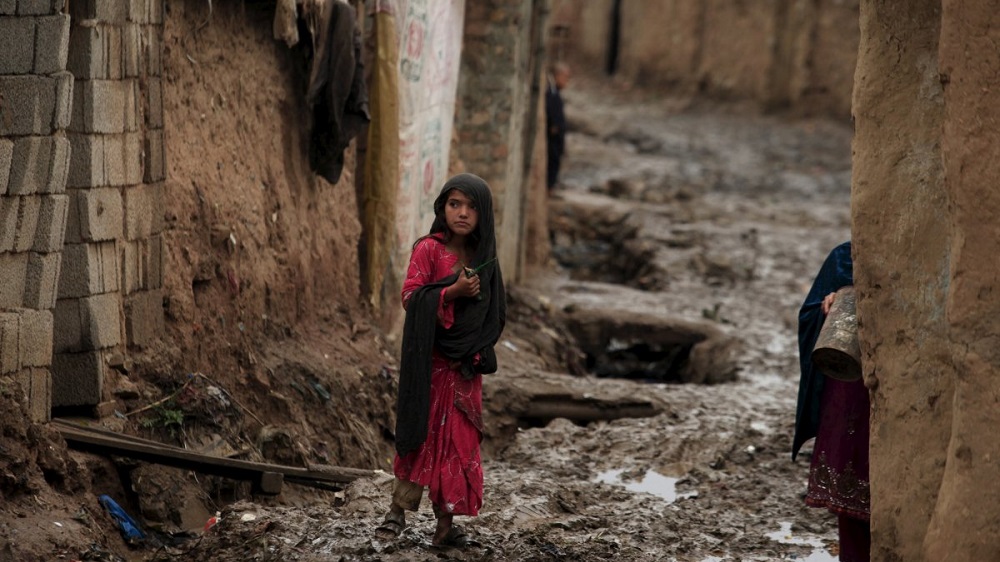Pakistan dropped a spot to 152nd among 189 countries in the 2019 Human Development Index, according to the United Nations Development Programme (UNDP) report.
The UNDP launched the Human Development Report 2019 on Thursday. The UNDP’s Human Development Report (HDR) “Beyond Income, Beyond Averages, Beyond Today: Inequalities in Human Development in the 21st Century” gave Pakistan a score of 0.560.
Sri Lanka is ranked at 130th, Bhutan at 134th, India at 129th, Bangladesh at 135th, Nepal at 147th, Pakistan at 152nd and Afghanistan is ranked at 170th on the list in South Asia.
This year’s report shows that a new generation of severe inequalities in human development is emerging, even as the gap is narrowing on many of the unresolved inequalities of the 20th century. These emerging dynamics under the shadow of the climate crisis and technological change demand new approaches in policies at national and global levels.
Sharing the findings of the report, Umer Malik said that Pakistan’s 2018 HDI of 0.560 is below the average of 0.634 for countries in the medium human development group and below the average of 0.642 for countries in South Asia. From South Asia, countries which are close to Pakistan in 2018 HDI rank, and to some extent in population size, are Bangladesh and India, which have HDIs ranked 135th and 129th respectively.
Pakistan’s HDI for 2018 is 0.560. However, when the value is discounted for inequality, the HDI falls to 0.386, a loss of 31.1 percent due to inequality in the distribution of the HDI dimension indices.
As the inequality in a country increases, the loss in human development also increases, Malik added.
According to the data, Pakistan’s life expectancy stands at 67; while the expected years of schooling is at 8.5 years, with the mean years of schooling standing at 5.2. The country’s Gross National Income (GNI) per capita is $5,190, the data showed.
However, the trend from 1990 till 2018 showed that Pakistan had steadily improved from being a low human development country to a medium development country, but the pace is very slow.
The HDI was created to emphasize that people and their capabilities should be the ultimate criteria for assessing the development of a country, not economic growth alone.
The report talks about the importance of addressing the different kinds of inequalities in the world today. The report measures the countries’ progress beyond just economic growth, with the ultimate aim of unlocking people’s full potential.
In Pakistan, 38.3 percent of the population (75,520 thousand people) are multidimensionally poor while an additional 12.9 percent are classified as vulnerable to multidimensional poverty (25,454 thousand people).
The breadth of deprivation (intensity) in Pakistan, which is the average deprivation score experienced by people in multidimensional poverty, is 51.7 percent. The Multidimensional Poverty Index (MPI), which is the share of the population that is multidimensionally poor, adjusted by the intensity of the deprivations, is 0.198. Bangladesh and India have MPIs of 0.198 and 0.123 respectively.
Inequalities in human development are not just about disparities in income and wealth. The 2019 HDR explores inequalities in human development by going beyond income, beyond averages, and beyond today. The report analyzes inequality in three steps: beyond income, beyond averages, and beyond today.
The report has highlighted that over a third of Pakistani children under the age of five experience “intra-household inequality”.
Speaking on the release of the report, Resident Representative of UNDP Pakistan Ignacio Artaza stated the Global HDR puts a lot of emphasis on going ‘beyond today’ to study inequality.
“Evidence is the key to planning and we want to make sure that we review the findings of the report and analyze how best they can inform policy,” said Dr Sania Nishtar. She also called for the revision of the National Finance Commission (NFC) formula to make it more targeted and reduce the poverty rate as well as inequality.
She further said that Ehsaas is about the creation of a ‘welfare state’ by countering elite capture and leveraging 21st-century tools such as using data and technology to create precision safety nets; promoting financial inclusion and access to digital services; supporting the economic empowerment of women; focusing on the central role of human capital formation for poverty eradication, economic growth and sustainable development; and overcoming financial barriers to accessing health and post-secondary education.
She further said that the program’s premise is grounded in the importance of strengthening institutions, transparency and good governance.

























